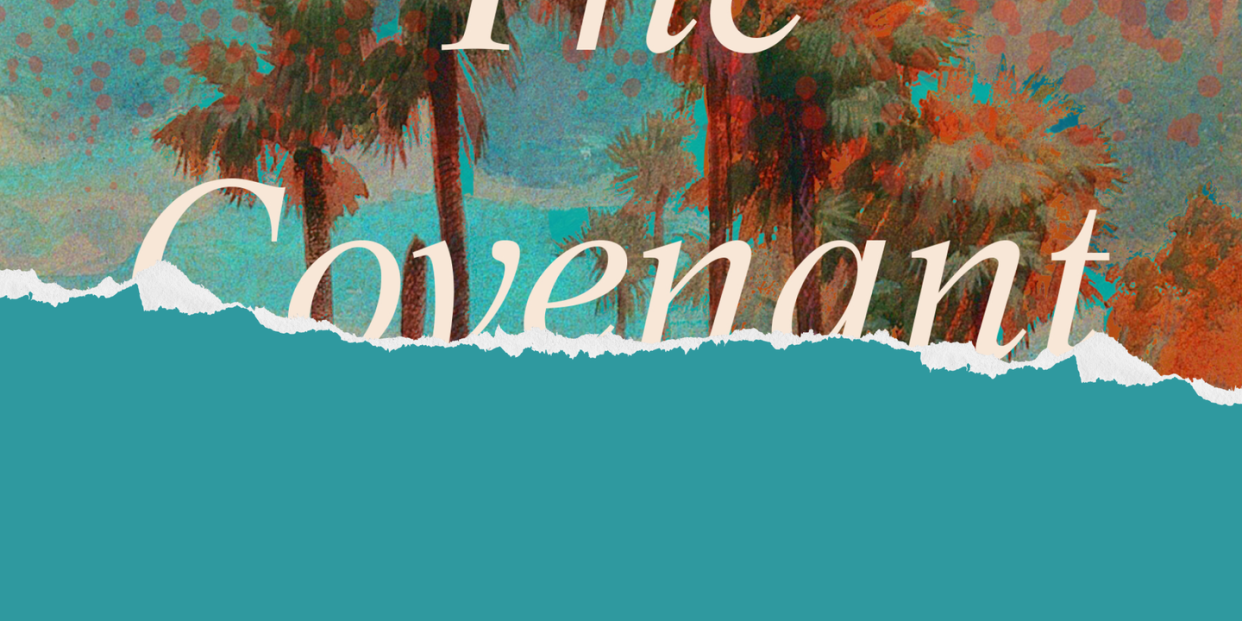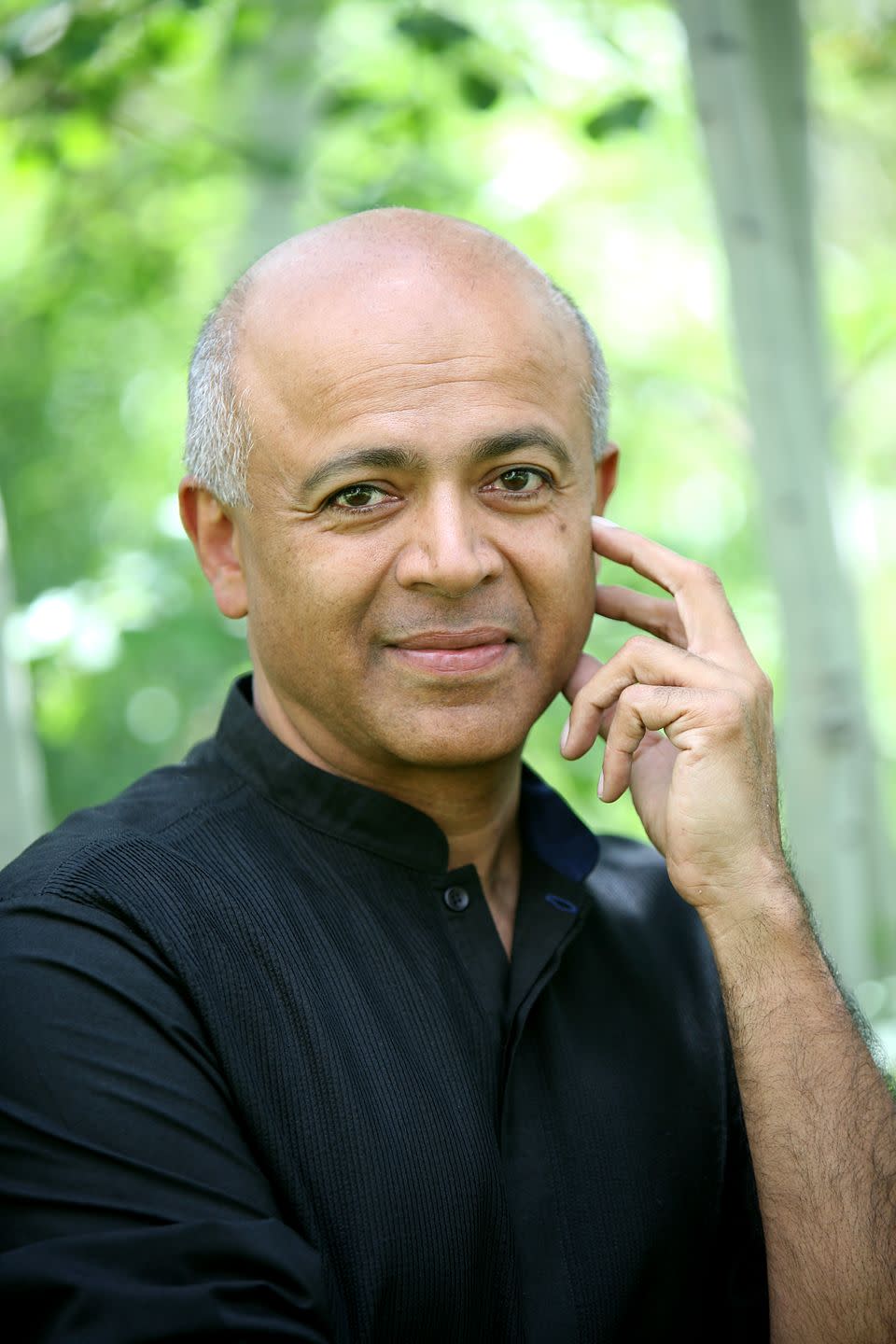Our Book Cover Reveal of “The Covenant of Water,” by Abraham Verghese

- Oops!Something went wrong.Please try again later.
“I contain multitudes,” Walt Whitman announced famously in “Song of Myself,” a cornerstone of American poetry. In that spirit of Whitmanian élan, Abraham Verghese introduces us to Big Ammachi (“Big Mother”), the captivating matriarch of his sumptuous, piercing The Covenant of Water, which spans almost eight decades in Kerala, South India. Grove will publish the novel next May. Resourceful, religious, relentless, Big Ammachi straddles the 20th century, the hub of a family whose lives spoke out from hers, as the subcontinent grapples with the demise of the Raj, shakes off the mantle of British colonialism, and unleashes the creative energies of a pluralistic nation. In an exclusive, Oprah Daily reveals the ravishing cover.
The design plays with an array of colors—russet, gold, turquoise, aquamarine—recalling the decorative palette and foreshortened space of Mughal painting while conveying an airy exuberance. The composition steers the eye upward, from watery bottom to land to sky. There’s a touch of the tropics in the foliage, a sweep of palm fronds. And tucked just inside the lower right corner, a young woman crouches, braid draped across her shoulder, contemplative.
“For The Covenant of Water, I wanted to use an illustration that felt botanically and geographically authentic to the Kerala region, where the novel takes place,” designer Kelly Winton says. “I found an old illustration from the 1850s of the region, accurate but somewhat quiet—I wanted the design to feel vibrant and radiant, so I enhanced the colors greatly with more luscious tones. I added a female figure to both play into the novel’s themes as well as to give the design a more grounded and rooted feeling.”
Verghese notes, “I was very gratified that my editor, Peter Blackstock, and the folks at Grove repeatedly asked for my reactions to the cover—we went through many iterations. I weighed in on things I liked. This one I was really delighted with. Even though this an epic story, you want the reader to come into it with some lightness and a sense of joy. It evokes the color and drama of the world we live in. I try to write about the everyday magic and miracle of just being alive, even in a sparse, poor setting. It reminds us we can have a richness in our everyday moments and interactions with other people.”
Amid the grandeur of his narrative mural is an intimate portrait of Big Ammachi, modeled on his great-grandmother, who, like her fictional counterpart, was married as an adolescent to an older widower. “It looked very unpromising,” Verghese says, but it ultimately grew into a “magnificent” union. Americans know little of the Christian minority on the south Malabar coast, a millennia-long history overshadowed by aggravated tensions between Hindus and Muslims. “Part of my desire to write this book was to capture a fascinating insular community. The only novel I can think of in that exact same community is Arundhati Roy’s The God of Small Things. Christianity existed in south India about the same time as it existed in ancient Rome, about 52 A.D., when St. Thomas, the notorious doubting apostle, found his way across the Arabian Sea to southern India; he was murdered in Madras (now known as Chennai) and is buried in the cathedral there.”
Whether this legend is apocryphal is a matter of “faith,” according to Verghese; there’s a strong case to be made for Thomas of Kanaan, who embarked from Damascus at approximately the same time, in that first generation of Christian missionary zeal. In Kerala, rituals blend Hindu iconography with Christian themes. Big Ammachi has other hurdles, though. Her family struggles with a curious curse: For three generations, a member has drowned, a liability among the lagoons and wetlands of Kerala.
Verghese is a polymath of exquisite empathy, his clinical training dovetailing with an MFA degree from the prestigious Iowa Writers’ Workshop. His oeuvre is widely beloved, from two lauded nonfiction books, My Own Country and The Tennis Partner, to his acclaimed, bestselling debut novel, Cutting for Stone. Originally published in 2009, it spawned a passionate cult of readers across the globe. His peripatetic life has buoyed him from his native Ethiopia, where he was born and raised by Christian immigrants from Kerala, to his medical education in India and the United States, to a dazzling career in varied communities throughout this country, from Johnson City, Tennessee, to Boston, Massachusetts, to El Paso, Texas. For the past 15 years, he’s served as professor of the theory and practice of medicine at Stanford University Medical School. His day job keeps him busy, which may explain, in part, the lengthy gestation of The Covenant of Water. Small wonder, then, that medicine, with its dazzling breakthroughs and dead ends, imbues this work.
Good things—great novels—come to those who wait.

You Might Also Like

